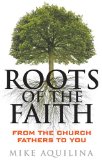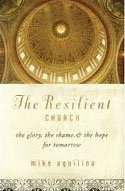[powerpress]
Episode 3 – Confession: the history of mercy
Roots of the Faith – From the Church Fathers to You with Mike Aquilina,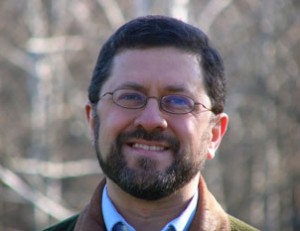 makes clear that just as an acorn grows into a tree and yet remains the same plant, so the Catholic Church is a living organism that has grown from the faith of the earliest Christians into the body of Christ we know today.
makes clear that just as an acorn grows into a tree and yet remains the same plant, so the Catholic Church is a living organism that has grown from the faith of the earliest Christians into the body of Christ we know today.
Also visit Mike’s “Discerning Hearts†page for more audio downloads and information!
Tags: audio, catholic church, downloads, mercy
This entry was posted on Thursday, March 5th, 2015 at 6:00 am
You can follow any responses to this entry through the RSS 2.0 feed.
 Take a listen to our  conversation with Mike Aquilina about St. Anthony, Church Father
Take a listen to our  conversation with Mike Aquilina about St. Anthony, Church Father
[powerpress]
A quote from St. Anthony:
“I saw the snares that the enemy spreads out over the world and I said groaning, “What can get through from such snares?” Then I heard a voice saying to me, “Humility.”
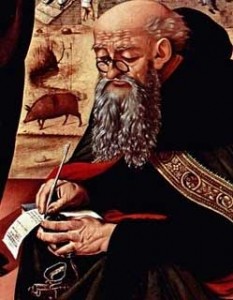 St. Anthony of the Desert, or St. Anthony the Abott, or St. Anthony the Great…no matter what you may call him, he is above all…a SAINT!
St. Anthony of the Desert, or St. Anthony the Abott, or St. Anthony the Great…no matter what you may call him, he is above all…a SAINT!
Saints SQPN.com – Following the death of his parents when he was about 20, Anthony insured that his sister completed her education, then he sold his house, furniture, and the land he owned, gave the proceeds to the poor, joined the anchorites who lived nearby, and moved into an empty sepulchre. At age 35 he moved to the desert to live alone; he lived 20 years in an abandoned fort.
Anthony barricaded the place for solitude, but admirers and would-be students broke in. He miraculously healed people, and agreed to be the spiritual counselor of others. His recommendation was to base life on the Gospel. Word spread, and so many disciples arrived that Anthony founded two monasteries on the Nile, one at Pispir, one at Arsinoe. Many of those who lived near him supported themselves by making baskets and brushes, and from that came his patronage of those trades.
Anthony briefly left his seclusion in 311, going to Alexandria, Egypt to fight Arianism, and to comfort the victims of the persecutions of Maximinus. At some point in his life, he met with his sister again. She, too, had withdrawn from the world, and directed a community of nuns. Anthony retired to the desert, living in a cave on Mount Colzim.
Descriptions paint him as uniformly modest and courteous. His example led many to take up the monastic life, and to follow his way. Late in life Anthony became a close friend of Saint Paul the Hermit, and he buried the aged anchorite, leading to his patronage of gravediggers. His biography was written by his friend Saint Athanasius of Alexandria.
His relationship with pigs and patronage of swineherds is a little complicated. Skin diseases were sometimes treated with applications of pork fat, which reduced inflammation and itching. As Anthony’s intervention aided in the same conditions, he was shown in art accompanied by a pig. People who saw the art work, but did not have it explained, thought there was a direct connection between Anthony and pigs – and people who worked with swine took him as their patron. –Saints SQPN.com
Tags: catholic, catholic podcast, catholic prayer
This entry was posted on Saturday, January 17th, 2015 at 12:00 pm
You can follow any responses to this entry through the RSS 2.0 feed.
[powerpress]
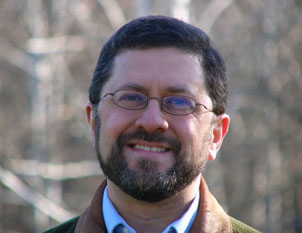 Episode 2 – The Mass: the Universal Sign
Episode 2 – The Mass: the Universal Sign
Roots of the Faith – From the Church Fathers to You with Mike Aquilina, makes clear that just as an acorn grows into a tree and yet remains the same plant, so the Catholic Church is a living organism that has grown from the faith of the earliest Christians into the body of Christ we know today. Hosted by Kris McGregor
Also visit Mike’s “Discerning Hearts” page for more audio downloads and information!
This entry was posted on Thursday, January 15th, 2015 at 12:56 pm
You can follow any responses to this entry through the RSS 2.0 feed.
 Episode 1 – Witnesses to Tradition. A grand overview of Church tradition as passed down to us by the Fathers of the Church…it’s scope and relevance for our lives today!
Episode 1 – Witnesses to Tradition. A grand overview of Church tradition as passed down to us by the Fathers of the Church…it’s scope and relevance for our lives today!
[powerpress]
Roots of the Faith – From the Church Fathers to You with Mike Aquilina, makes clear that just as an acorn grows into a tree and yet remains the same plant, so the Catholic Church is a living organism that has grown from the faith of the earliest Christians into the body of Christ we know today. Hosted by Kris McGregor
Also visit Mike’s “Discerning Hearts” page for more audio downloads and information!
This entry was posted on Thursday, December 11th, 2014 at 6:12 am
You can follow any responses to this entry through the RSS 2.0 feed.
What is old is new again. That’s why the Fathers are so important, they’ve done battle with the heresies that continue to plaque our Church even today. Also in his writings you can see the “Theology of the Body”…1800 years or so before we hear from Pope John Paul II. Faith and Reason can live in harmony…then knew it then and we can be confident about that now.
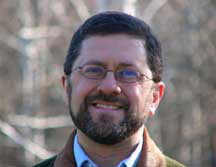 Take a listen to Mike Aquilna, who does a great job giving us the life of this early, early father of the Church, Clement of Alexandria.
Take a listen to Mike Aquilna, who does a great job giving us the life of this early, early father of the Church, Clement of Alexandria.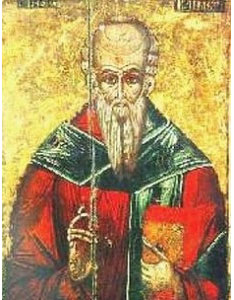
[powerpress]
Here in a very small nutshell is an overview of St. Clement of Alexandria –
from wikipedia –
Titus Flavius Clemens (c.150 – c. 215), known as Clement of Alexandria (to distinguish him from Clement of Rome), was a Christian theologian and the head of the noted Catechetical School of Alexandria. Clement is best remembered as the teacher of Origen. He united Greek philosophical traditions with Christian doctrine and valued gnosis that with communion for all people could be held by common Christians specially chosen by God.Though he constantly opposes the concept of gnosis as defined by the Gnostics, he used the term “gnostic” for Christians who had attained the deeper teaching of the Logos.He developed a Christian Platonism. He presented the goal of Christian life as deification, identified both as Platonism’s assimilation into God and the biblical imitation of God.
Like Origen, he arose from Alexandria’s Catechetical School and was well versed in pagan literature.Origen succeeded Clement as head of the school.Alexandria had a major Christian community in early Christianity, noted for its scholarship and its high-quality copies of Scripture.
Clement is counted as one of the early Church Fathers. He advocated a vegetarian diet and claimed that the apostles Peter, Matthew, and James the Just were vegetarians. – wikipedia
Great trilogy of St. Clement of Alexandria
The trilogy into which Clement’s principal remains are connected by their purpose and mode of treatment is composed of:
- the Protrepticus (“Exhortation to the Greeks”)
- the Paedagogus (“Instructor”)
- the Stromata (“Miscellanies”)
The first book deals with the religious basis of Christian morality, the second and third with the individual cases of conduct.
Tags: alexanderia, Church, clement of alexandria, early church fathers, faith and reason, father, father of the church, fathers mike, fathers of the church, gnostics, heresy, mike aquilina, Mike Aquilna
This entry was posted on Thursday, December 4th, 2014 at 8:26 am
You can follow any responses to this entry through the RSS 2.0 feed.
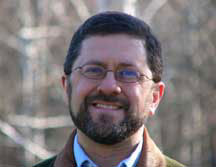 Episode 12– The History of the Future
Episode 12– The History of the Future
The Resilient Church with Mike Aquilina, offers a fascinating look at the trials and triumphs of the Catholic Church over the past two thousand years. Fast-paced sketches of critical periods in church history give readers perspective on the challenges faced by the church today. Mike Aquilina does not shrink from the realities of the past, including badly behaved leaders and those who betrayed the Lord. Yet he also leaves us all with well-founded hope for the future: God remains faithful in every circumstance and fulfills his promise to remain with his church always. Hosted by Kris McGregor
Also visit Mike’s “Discerning Hearts†page for more audio downloads and information!
This entry was posted on Monday, December 1st, 2014 at 5:27 am
You can follow any responses to this entry through the RSS 2.0 feed.
Episode 11– A Century of Cataclysms
The Resilient Church with Mike Aquilina, offers a fascinating look at the trials and triumphs of the Catholic Church over the past two thousand years. Fast-paced sketches of critical periods in church history give readers perspective on the challenges faced by the church today. Mike Aquilina does not shrink from the realities of the past, including badly behaved leaders and those who betrayed the Lord. Yet he also leaves us all with well-founded hope for the future: God remains faithful in every circumstance and fulfills his promise to remain with his church always. Hosted by Kris McGregor
Also visit Mike’s “Discerning Hearts†page for more audio downloads and information!
Tags: catholic, catholic podcast, catholic prayer, cathollc spirituality
This entry was posted on Thursday, November 20th, 2014 at 4:58 pm
You can follow any responses to this entry through the RSS 2.0 feed.
 Episode 10– The Secular Age
Episode 10– The Secular Age
The Resilient Church with Mike Aquilina, offers a fascinating look at the trials and triumphs of the Catholic Church over the past two thousand years. Fast-paced sketches of critical periods in church history give readers perspective on the challenges faced by the church today. Mike Aquilina does not shrink from the realities of the past, including badly behaved leaders and those who betrayed the Lord. Yet he also leaves us all with well-founded hope for the future: God remains faithful in every circumstance and fulfills his promise to remain with his church always. Hosted by Kris McGregor
Also visit Mike’s “Discerning Hearts†page for more audio downloads and information!
Tags: catholic, catholic podcast, catholic prayer, cathollc spirituality
This entry was posted on Thursday, October 16th, 2014 at 1:28 pm
You can follow any responses to this entry through the RSS 2.0 feed.
Learn more about St. Jerome in our fascinating discussion with Mike Aquilina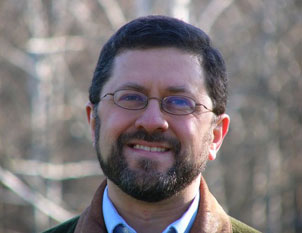
[powerpress]
Spiritual Writings:
 - Letters
-Â The Perpetual Virginity of Blessed Mary
-Â To Pammachius Against John of Jerusalem
-Â The Dialogue Against the Luciferians
-Â The Life of Malchus, the Captive Monk
-Â The Life of S. Hilarion
-Â The Life of Paulus the First Hermit
-Â Against Jovinianus
-Â Against Vigilantius
-Â Against the Pelagians
-Â Prefaces
-Â De Viris Illustribus (Illustrious Men)
-Â Apology for himself against the Books of Rufinus
Prayer to St. Jerome
 For Insight
Through your anger and confrontations you remind us that we all have a duty to confront others from time to time. You also remind us that we have a duty to examine ourselves and confront our own weaknesses and harmful behaviours. Your life teaches that I must accept others for who they are. You taught of the danger of self-righteousness; of the importance of reflecting upon one of Jesus’ most insightful teachings: “Let the man who has no sin on his conscience throw the first stone.” In the light of your teachings, Saint Jerome, help me to see my own self clearly. Help me to confront my own biases and to act to change others only out of love. If I see that I have the duty to confront another, I ask you to be with me during those necessary but unpleasant moments of confrontation. Help me to remember that love alone can make changes for the good.
Amen.
The Thunderer
God’s angry man, His crotchety scholar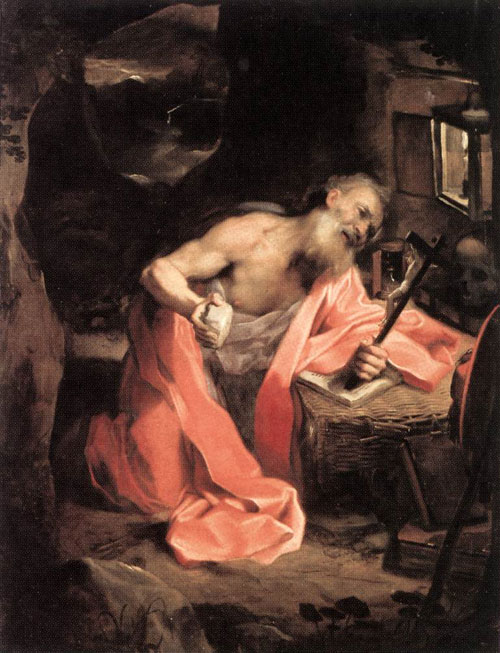
Was Saint Jerome,Â
The great name-caller
Who cared not a dime
For the laws of Libel
And in his spare time
Translated the Bible.
Quick to disparage
All joys but learning
Jerome thought marriage
Better than burning;
But didn’t like woman’s
Painted cheeks;
Didn’t like Romans,
Didn’t like Greeks,
Hated Pagans
For their Pagan ways,
Yet doted on Cicero all of his days.
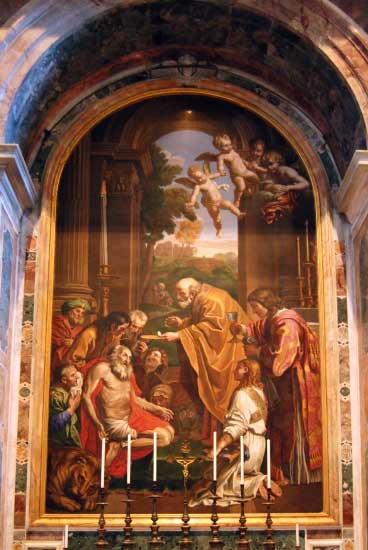
A born reformer, cross and gifted,
He scolded mankind
Sterner than Swift did;
Worked to save
The world from the heathen;
Fled to a cave
For peace to breathe in,
Promptly wherewith
For miles around
He filled the air with
Fury and sound.
In a mighty prose
For Almighty ends,
He thrust at his foes,
Quarreled with his friends,
And served his Master,
Though with complaint.
He wasn’t a plaster sort of a saint.
But he swelled men’s minds
With a Christian leaven.
It takes all kinds
To make a heaven
by Phyllis McGinley, from “Times Three: Selected Verse from Three Decades with Seventy New Poems”, (Pulitzer Prize Winner).
Tags: catholic, catholic podcast, catholic prayer, cathollc spirituality, father, fathers mike, love, mike aquilina, phyllis mcginley, saint jerome, St Jerome
This entry was posted on Tuesday, September 30th, 2014 at 12:13 pm
You can follow any responses to this entry through the RSS 2.0 feed.
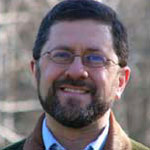 Episode 8– The Conversion of the New World
Episode 8– The Conversion of the New World
The Resilient Church with Mike Aquilina, offers a fascinating look at the trials and triumphs of the Catholic Church over the past two thousand years. Fast-paced sketches of critical periods in church history give readers perspective on the challenges faced by the church today. Mike Aquilina does not shrink from the realities of the past, including badly behaved leaders and those who betrayed the Lord. Yet he also leaves us all with well-founded hope for the future: God remains faithful in every circumstance and fulfills his promise to remain with his church always. Hosted by Kris McGregor
Also visit Mike’s “Discerning Hearts†page for more audio downloads and information!
Tags: catholic, catholic podcast, catholic prayer, cathollc spirituality
This entry was posted on Thursday, September 25th, 2014 at 2:08 pm
You can follow any responses to this entry through the RSS 2.0 feed.
 Episode 7– Reformation Inside and Out
Episode 7– Reformation Inside and Out
The Resilient Church with Mike Aquilina, offers a fascinating look at the trials and triumphs of the Catholic Church over the past two thousand years. Fast-paced sketches of critical periods in church history give readers perspective on the challenges faced by the church today. Mike Aquilina does not shrink from the realities of the past, including badly behaved leaders and those who betrayed the Lord. Yet he also leaves us all with well-founded hope for the future: God remains faithful in every circumstance and fulfills his promise to remain with his church always. Hosted by Kris McGregor
Also visit Mike’s “Discerning Hearts†page for more audio downloads and information!
Tags: catholic, catholic podcast, catholic prayer, cathollc spirituality
This entry was posted on Thursday, September 18th, 2014 at 12:32 pm
You can follow any responses to this entry through the RSS 2.0 feed.
 Episode 6– Crusades Abroad and at Home
Episode 6– Crusades Abroad and at Home
The Resilient Church with Mike Aquilina, offers a fascinating look at the trials and triumphs of the Catholic Church over the past two thousand years. Fast-paced sketches of critical periods in church history give readers perspective on the challenges faced by the church today. Mike Aquilina does not shrink from the realities of the past, including badly behaved leaders and those who betrayed the Lord. Yet he also leaves us all with well-founded hope for the future: God remains faithful in every circumstance and fulfills his promise to remain with his church always. Hosted by Kris McGregor
Also visit Mike’s “Discerning Hearts†page for more audio downloads and information!
Tags: catholic, catholic podcast, catholic prayer, cathollc spirituality
This entry was posted on Friday, August 22nd, 2014 at 8:16 am
You can follow any responses to this entry through the RSS 2.0 feed.
[powerpress] An anti-pope who is considered a father of the Church and a saint. God’s great  mercy knows no bounds! How does someone who was a self proclaimed pope (and considered the first
mercy knows no bounds! How does someone who was a self proclaimed pope (and considered the first 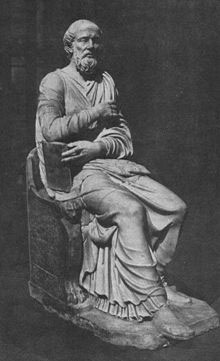 anti-pope in Church history) become a saint? The story of St. Hippolytus is a fascinating one. A greek-speaking priest who who lived in the late 100’s – early 200’s; his writings on the Eucharistic liturgy are some of the most beautiful of all time. Check him out Mike Aquilina’s great blog The Way of the Fathers
anti-pope in Church history) become a saint? The story of St. Hippolytus is a fascinating one. A greek-speaking priest who who lived in the late 100’s – early 200’s; his writings on the Eucharistic liturgy are some of the most beautiful of all time. Check him out Mike Aquilina’s great blog The Way of the Fathers
For more audio from Mike’s visit his Discerning Hearts page
Tags: catholic, catholic podcast, catholic prayer, cathollc spirituality, Church, father, fathers of the church, mercy, mike aquilina, osv, st. paul center for biblical theology
This entry was posted on Wednesday, August 13th, 2014 at 11:43 am
You can follow any responses to this entry through the RSS 2.0 feed.
Episode 3 – Heresy and Orthodoxy
[powerpress]
The Resilient Church with Mike Aquilina, offers a fascinating look at the trials and triumphs of the Catholic Church over the past two thousand years. Fast-paced sketches of critical periods in church history give readers perspective on the challenges faced by the church today. Mike Aquilina does not shrink from the realities of the past, including badly behaved leaders and those who betrayed the Lord. Yet he also leaves us all with well-founded hope for the future: God remains faithful in every circumstance and fulfills his promise to remain with his church always.
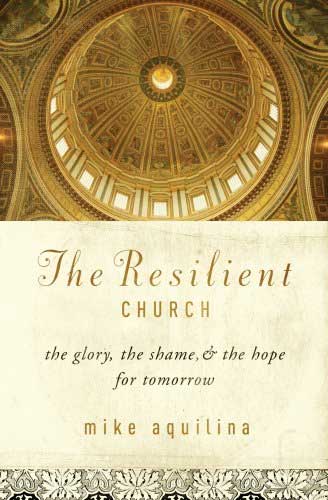 Pick up a copy of Mke’s book. You’ll find so much more and invaluable references and resoources, as well
Pick up a copy of Mke’s book. You’ll find so much more and invaluable references and resoources, as well
Also visit Mike’s “Discerning Hearts†page for more audio downloads and information!
Tags: catholic, catholic podcast, catholic prayer, cathollc spirituality
This entry was posted on Thursday, July 24th, 2014 at 6:22 am
You can follow any responses to this entry through the RSS 2.0 feed.
Bruce and I had a great conversation with Mike Aquilina about the great St. Benedict.
[powerpress]
Here is a teaching from another Benedict our Holy Father Pope Benedict XVI
St Peter’s Square
Wednesday, 9 April 2008
Dear Brothers and Sisters,
Today, I would like to speak about Benedict, the Founder of Western Monasticism and also the Patron of my Pontificate. I begin with words that St Gregory the Great wrote about St Benedict: “The man of God who shone on this earth among so many miracles was just as brilliant in the eloquent exposition of his teaching” (cf. Dialogues II, 36). The great Pope wrote these words in 592 A.D. The holy monk, who had died barely 50 years earlier, lived on in people’s memories and especially in the flourishing religious Order he had founded. St Benedict of Norcia, with his life and his work, had a fundamental influence on the development of European civilization and culture. The most important source on Benedict’s life is the second book of St Gregory the Great’s Dialogues. It is not a biography in the classical sense. In
accordance with the ideas of his time, by giving the example of a real man – St Benedict, in this case – Gregory wished to illustrate the ascent to the peak of contemplation which can be achieved by those who abandon themselves to God. He therefore gives us a model for human life in the climb towards the summit of perfection. St Gregory the Great also tells in this book of the Dialogues of many miracles worked by the Saint, and here too he does not merely wish to recount something curious but rather to show how God, by admonishing, helping and even punishing, intervenes in the practical situations of man’s life. Gregory’s aim was to demonstrate that God is not a distant hypothesis placed at the origin of the world but is present in the life of man, of every man.
This perspective of the “biographer” is also explained in light of the general context of his time: straddling the fifth and sixth centuries, “the world was overturned by a tremendous crisis of values and institutions caused by the collapse of the Roman Empire, the invasion of new peoples and the decay of morals”. But in this terrible situation, here, in this very city of Rome, Gregory presented St Benedict as a “luminous star” in order to point the way out of the “black night of history” (cf. John Paul II, 18 May 1979).
In fact, the Saint’s work and particularly his Rule were to prove heralds of an authentic spiritual leaven which, in the course of the centuries, far beyond the boundaries of his country and time, changed the face of Europe following the fall of the political unity created by the Roman Empire, inspiring a new spiritual and cultural unity, that of the Christian faith shared by the peoples of the Continent. This is how the reality we call “Europe” came into being.
St Benedict was born around the year 480. As St Gregory said, he came “ex provincia Nursiae” – from the province of Norcia. His well-to-do parents sent him to study in Rome. However, he did not stay long in the Eternal City. As a fully plausible explanation, Gregory mentions that the young Benedict was put off by the dissolute lifestyle of many of his fellow students and did not wish to make the same mistakes. He wanted only to please God: “soli Deo placere desiderans” (II Dialogues, Prol. 1). Thus, even before he finished his studies, Benedict left Rome and withdrew to the solitude of the mountains east of Rome. After a short stay in the village of Enfide (today, Affile), where for a time he lived with a “religious community” of monks, he became a hermit in the neighbouring locality of Subiaco. He lived there completely alone for three years in a cave which has been the heart of a Benedictine Monastery called the “Sacro Speco” (Holy Grotto) since the early Middle Ages. The period in Subiaco, a time of solitude with God, was a time of maturation for Benedict. It was here that he bore and overcame the three fundamental temptations of every human being: the temptation of self-affirmation and the desire to put oneself at the centre, the temptation of sensuality and, lastly, the temptation of anger and revenge. In fact, Benedict was convinced that only after overcoming these temptations would he be able to say a useful word to others about their own situations of neediness. Thus, having tranquilized his soul, he could be in full control of the drive of his ego and thus create peace around him. Only then did he decide to found his first monasteries in the Valley of the Anio, near Subiaco.
In the year 529, Benedict left Subiaco and settled in Monte Cassino. Some have explained this move as an escape from the intrigues of an envious local cleric. However, this attempt at an explanation hardly proved convincing since the latter’s sudden death did not induce Benedict to return (II Dialogues, 8). In fact, this decision was called for because he had entered a new phase of inner maturity and monastic experience. According to Gregory the Great, Benedict’s exodus from the remote Valley of the Anio to Monte Cassio – a plateau dominating the vast surrounding plain which can be seen from afar – has a symbolic character: a hidden monastic life has its own raison d’être but a monastery also has its public purpose in the life of the Church and of society, and it must give visibility to the faith as a force of life. Indeed, when Benedict’s earthly life ended on 21 March 547, he bequeathed with his Rule and the Benedictine family he founded a heritage that bore fruit in the passing centuries and is still bearing fruit throughout the world. (more…)
Tags: benedictines, catholic, catholic podcast, catholic prayer, cathollc spirituality, Europe, mike aquilina, Roman Empire, st benedict, st. paul center for biblical theology
This entry was posted on Friday, July 11th, 2014 at 5:02 am
You can follow any responses to this entry through the RSS 2.0 feed.

